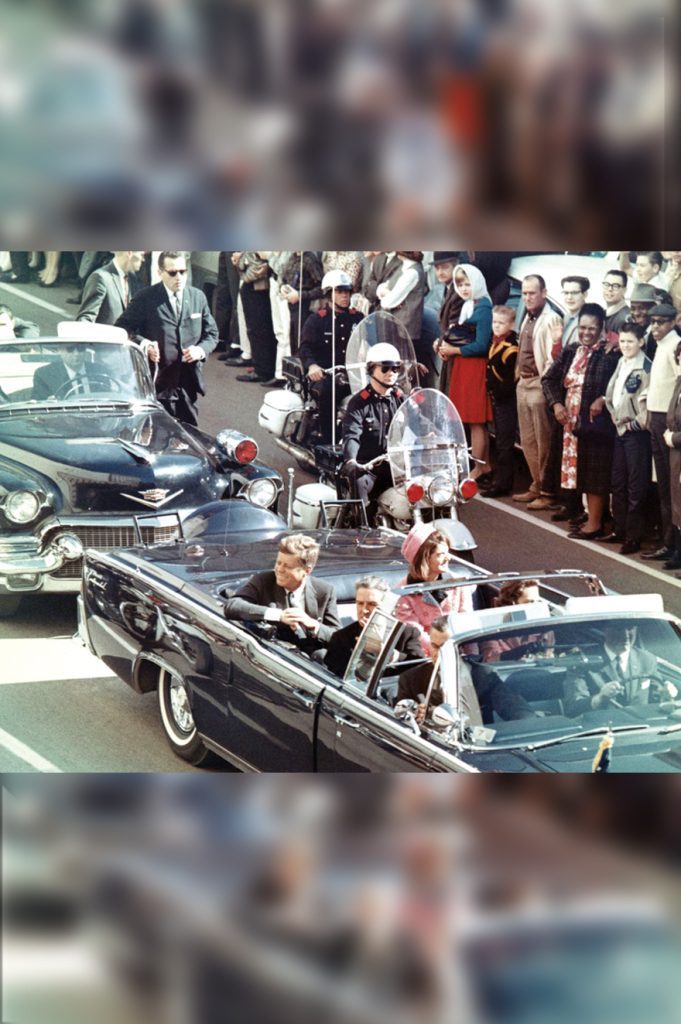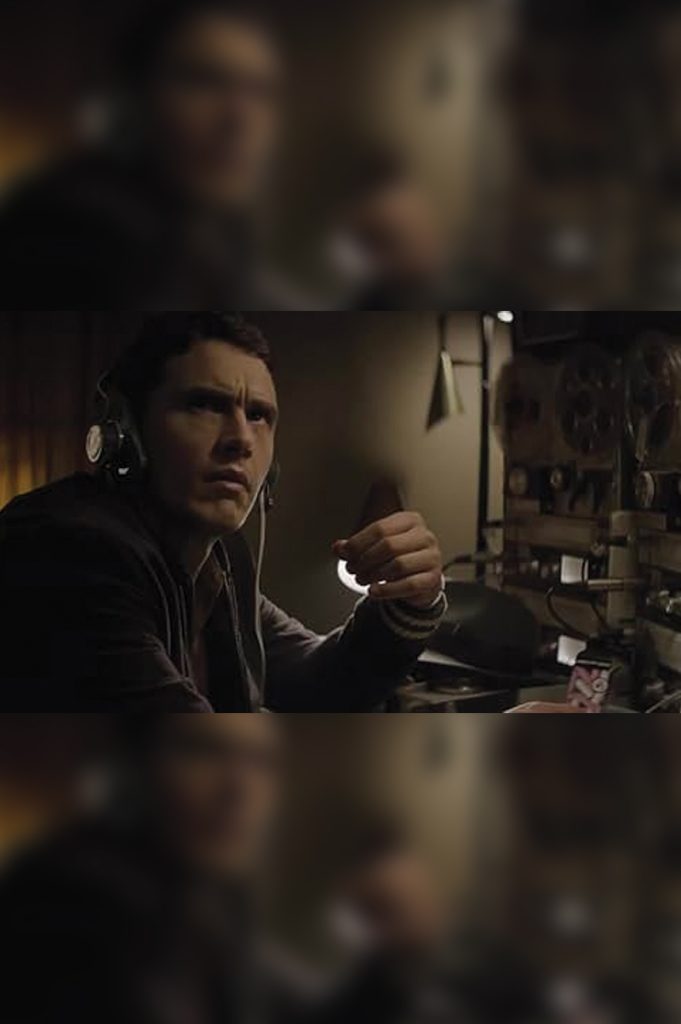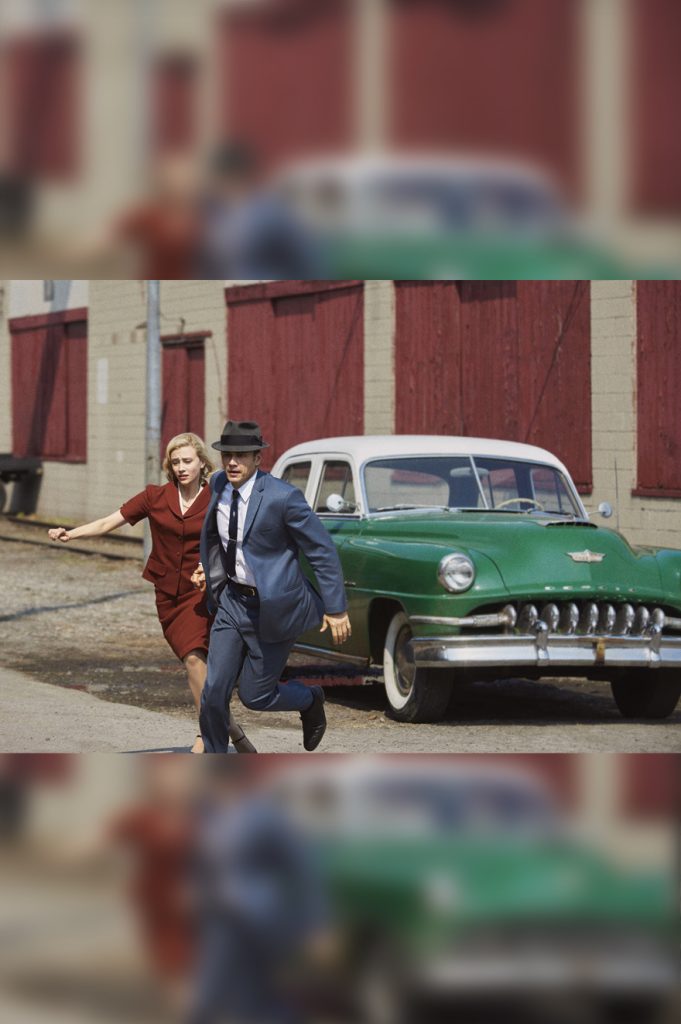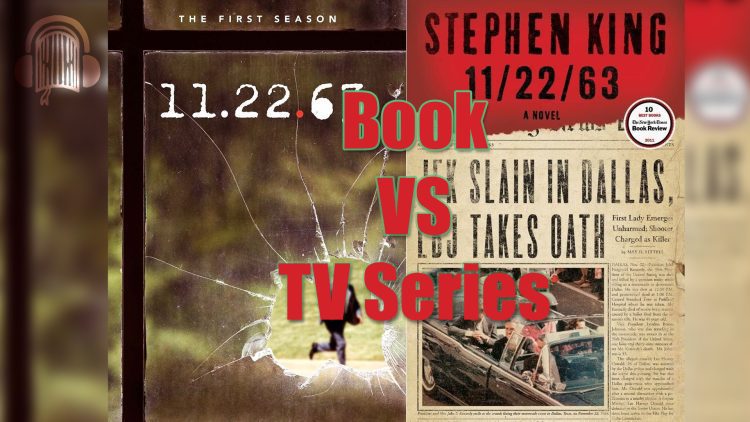In this episode of the Fully-Booked podcast, we dive into the fascinating world of alternate history fiction with the 2016 Hulu miniseries 11.22.63, based on Stephen King’s 2011 novel of the same name. While King is primarily known for his horror works, 11.22.63 showcases his versatility as a writer, blending elements of science fiction, historical fiction, and thriller to create a compelling narrative centered around one of the most pivotal moments in American history: the assassination of President John F. Kennedy.
Note
The following is an editorialized transcript of our weekly literary podcast. If you would like to listen to the podcast, click the play button above orlisten on your favorite platform with the links below.
The Kennedy Assassination and Its Aftermath

To fully appreciate the premise of 11.22.63, it’s essential to understand the historical context of the Kennedy assassination. On November 22, 1963, President John F. Kennedy was fatally shot while riding in a motorcade through Dealey Plaza in Dallas, Texas. The alleged assassin, Lee Harvey Oswald, was apprehended shortly after but was himself killed by nightclub owner Jack Ruby before he could stand trial.
RelatedThe Forgotten Book That Invented Alternate History In America
The assassination marked a turning point in American history, setting off a chain of events that would reshape the political and cultural landscape for decades to come. In the years following Kennedy’s death, several other prominent figures, including Malcolm X, Robert F. Kennedy, and Martin Luther King Jr., would also fall victim to assassination, further deepening the sense of turmoil and unrest that characterized the 1960s.
The Premise of 11.22.63
11.22.63 follows the story of Jake Epping, a high school English teacher from Maine who discovers a portal that transports him back to October 21, 1960. His friend Al Templeton reveals the portal to him. He has been using it to attempt to prevent the Kennedy assassination, believing that doing so could change the course of history for the better.
When Al becomes too ill to continue his mission, Jake takes up the mantle, traveling back to the 1960s and assuming a new identity as he attempts to unravel the mystery surrounding Oswald and the assassination. Along the way, he becomes entangled in the lives of several characters, including Sadie, a beautiful librarian with an abusive ex-husband, and Bill Turcotte, a young man who becomes Jake’s reluctant ally.
The Butterfly Effect and the Obdurate Past

One of the central themes of 11.22.63 is the idea of the butterfly effect – the notion that even small changes in the past can have far-reaching and unpredictable consequences. As Jake delves deeper into his mission, he begins to realize that the past is not as malleable as he initially believed and that his actions may be having unintended effects on the future.
This idea is embodied in the character of the Yellow Card Man, a mysterious figure who serves as a warning to Jake about the dangers of meddling with history. The past, the Yellow Card Man suggests, is obdurate – resistant to change and prone to pushing back against those who try to alter it.
Related10 Historical Fiction Novels That Deserve a Screen Adaptation
Differences Between the Novel and the Miniseries

While the miniseries stays largely faithful to the broad strokes of King’s novel, there are several notable differences between the two. In the book, for example, the character of Harry Dunning, one of Jake’s adult students whose family was murdered by his father in 1960, plays a more prominent role, with his story serving as a test case for Jake’s ability to change the past.
The miniseries also expands the role of Bill Turcotte, who becomes a more active participant in Jake’s mission and develops a closer relationship with Sadie. Additionally, the ending of the miniseries diverges slightly from that of the novel, offering a more bittersweet and ambiguous resolution to Jake and Sadie’s story.
RelatedHow Stephen King Almost Threw Away His Most Successful Book
In Closing

Despite these differences, both the novel and the miniseries of 11.22.63 offer a compelling and thought-provoking exploration of the allure and the perils of alternate history. By focusing on one of the most significant and enduring tragedies in American history, King invites us to consider the ripple effects of our actions and the ways in which the past, for better or worse, shapes the present and the future.
Through the character of Jake Epping, we are forced to grapple with the moral and philosophical implications of attempting to change history, even with the best of intentions. While the prospect of undoing a great wrong or preventing a terrible tragedy may be seductive, 11.22.63 suggests that the consequences of such actions are ultimately unpredictable and potentially catastrophic.
Enjoying this article?
Subscribe to our weekly newsletterIn the end, 11.22.63 stands as a testament to the enduring power of storytelling to illuminate the human condition and challenge our assumptions about the world we inhabit. Whether you’re a fan of Stephen King, a history buff, or simply a lover of great television, this miniseries is well worth your time – a haunting and deeply affecting meditation on the nature of time, fate, and the weight of the past.






















